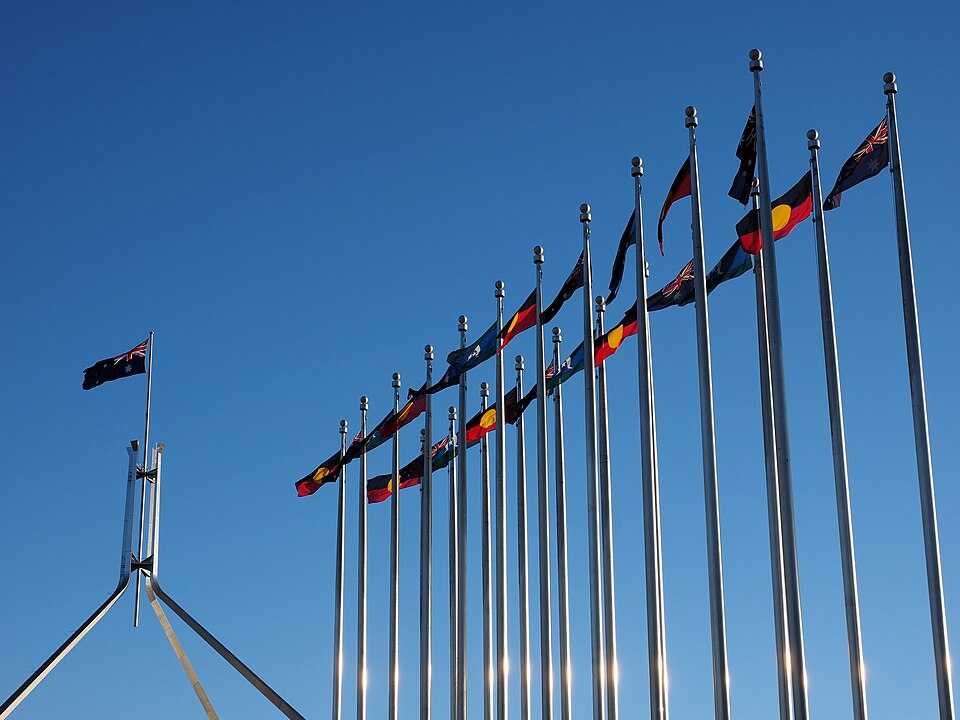This week in Australian foreign affairs: Albanese in Jakarta; Albanese to visit Vatican City and Singapore; new investment in Indonesia; Wong marks Russia’s responsibility for downing of Flight MH17, and more.
On 14 May, Prime Minister Anthony Albanese announced he will visit to Indonesia, the Holy See, and Singapore. In Indonesia from 14-16 May, Albanese met with President of the Republic of Indonesia Prabowo Subianto in his first bilateral visit following his election in 2022. The two leaders discussed “the close relations between Australia and Indonesia, and how our countries can deepen our partnership.” Travelling with Albanese were Minister for Foreign Affairs Senator Penny Wong and Minister for Home Affairs Tony Burke MP.
Albanese will travel to the Holy See to attend the inauguration of Holy Father Pope Leo XIV, Bishop of Rome, on Sunday 18 May 2025. During his visit to Vatican City, Albanese will meet with a number of other world leaders also in attendance, and formally invite Pope Leo XIV to Australia for the 54th International Eucharistic Congress in 2028. “Since 1973, the diplomatic relations between Australia and the Holy See have helped foster strong links with the Catholic Church, including its humanitarian efforts around the globe, and the five million Australians of the Catholic faith.”
On 20 May, the Albanese will meet with Prime Minister of Singapore Lawrence Wong before returning to Australia. “Singapore is one of Australia’s closest partners, with a friendship anchored in strategic trust and deep cooperation, and a shared regional and global outlook. Deputy Prime Minister Richard Marles will be Acting Prime Minister while Prime Minister Albanese is overseas.”
In a media statement on 15 May with Prabowo in Jakarta, Albanese underscored the strategic and regional significance of the Australia-Indonesia relationship, declaring that “no relationship is more important to Australia than this one” and that Indonesia is central to the prosperity, security, and stability of the Indo-Pacific. The leaders discussed strengthening economic and security ties, building on the “Invested: Australia’s Southeast Asia Economic Strategy to 2040,” which Albanese first launched in Jakarta in 2023, and supporting Indonesia’s accession to the OECD and the Comprehensive and Progressive Agreement for Trans-Pacific Partnership (CPTPP). Albanese highlighted the importance of converting economic potential into practical outcomes through deeper engagement by government, business, and civil society. On security, both leaders committed to expanding cooperation under the Defence Co-Operation Agreement signed in 2024, which builds on the Lombok Treaty and enables collaboration in maritime security, counter-terrorism, and disaster response. Albanese also paid tribute to the long-standing people-to-people ties between the two countries, recalling Australia’s early support for Indonesian independence and the role of Australian trade unions in standing in solidarity with the Indonesian people. He described the relationship as one rooted in shared values and mutual respect, and expressed confidence in President Prabowo’s leadership to further elevate the partnership.
In a second media release on 15 May, Albanese joined Prabowo in issuing a Joint Communiqué, reaffirming their commitment to strengthening the Australia–Indonesia Comprehensive Strategic Partnership amid growing regional and global uncertainty. They agreed to expand cooperation across trade, investment, security, health, and education, with a focus on aligning shared interests in sustainable development and regional stability. The two countries committed to reviewing and expanding the Indonesia-Australia Comprehensive Economic Partnership Agreement (IA-CEPA) to address emerging opportunities in digital trade, critical minerals, and the net-zero transition.
To deepen security ties, Australia announced several initiatives including AU$15 million for maritime cooperation, support for Indonesian military training in the Northern Territory, and $3.5 million for an anti-malaria drug trial for Indonesian forces. Australia also pledged $100 million to bolster Indonesia’s health system, alongside $50 million for green infrastructure through the KINETIK partnership. Broader economic collaboration was reinforced through support for Indonesia’s sovereign wealth fund and increased educational and cultural ties, including doubling the number of participants in the Indonesian Language Learning Ambassadors program and offering scholarships for Indonesian educators. Leaders also welcomed closer cooperation between Football Australia and the Football Federation of Indonesia, with a focus on women’s football and major event collaboration.
On 13 May, Wong released a statement on Russia’s responsibility for the downing of Flight MH17. “The International Civil Aviation Organisation (ICAO) Council in Montreal has found Russia is responsible under international law for the downing of Malaysia Airlines Flight MH17 on 17 July 2014.” The Council “found that Russia breached the prohibition under international law on the use of weapons against civil aircraft in flight and is responsible for the loss of 298 innocent lives, including 38 who called Australia home.” The statement calls upon Russia to face up to its responsibility for this act of violence and “make reparations for its egregious conduct, as required under international law.”
Dr Adam Bartley is the managing editor for AIIA’s Australian Outlook and weekly columnist for The Week in Australian Foreign Affairs. He is a former Fulbright Scholar and non-resident fellow at the Elliot School for International Affairs, the George Washington University. Adam also has positions as post-doctoral fellow at the Centre for Cyber Security Research and Innovation RMIT University and as program manager of the AI Trilateral Experts Group. He can be found on Twitter here.
This article is published under a Creative Commons License and may be republished with attribution.



